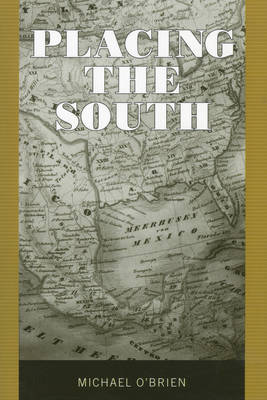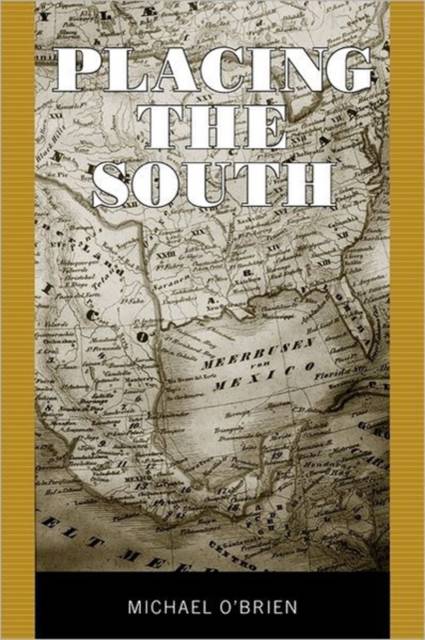
Bedankt voor het vertrouwen het afgelopen jaar! Om jou te bedanken bieden we GRATIS verzending (in België) aan op alles gedurende de hele maand januari.
- Afhalen na 1 uur in een winkel met voorraad
- In januari gratis thuislevering in België
- Ruim aanbod met 7 miljoen producten
Bedankt voor het vertrouwen het afgelopen jaar! Om jou te bedanken bieden we GRATIS verzending (in België) aan op alles gedurende de hele maand januari.
- Afhalen na 1 uur in een winkel met voorraad
- In januari gratis thuislevering in België
- Ruim aanbod met 7 miljoen producten
Zoeken
Omschrijving
The best from twenty years of a noted intellectual historian's work Placing the South offers a selection of work published between 1985 and 2005 by one of the most incisive historians and literary critics of the South. The pieces seek to situate the South in a variety of contexts and offer a compelling defense of what Kwame Anthony Appiah has called "rooted cosmopolitanism." This is a mode of understanding based on respect for what is local and an awareness that regionalism is not enough. Hybridity, in both culture and literature, is inescapable and desirable. The first section of the book ("Placing") contains three comparative analyses that look at how regionalism has recently been conceptualized globally, how the modern South has acquired pertinence for those outside the United States, and how the relationship between Britain and the South has worked. The second section ("Ideologies") scrutinizes political ideas--freedom, imperialism, nationalism, racial ideology--which have transformed American discourse. The third section ("Forms") examines genre and how the South has been constructed and reconstructed by such literary forms as autobiography, biography, history, and literary history. The final section ("Writers") contains critical appreciations of political thinkers, novelists, poets, critics, historians, and sociologists important to southern intellectual life. Taken together, the essays offer a robust analysis of a dynamic region. Michael O'Brien is professor of American intellectual history at University of Cambridge and a fellow at Jesus College. He is the author of Conjectures of Order: Intellectual Life and the American South, 1810-1860 and other books.
Specificaties
Betrokkenen
- Auteur(s):
- Uitgeverij:
Inhoud
- Aantal bladzijden:
- 288
- Taal:
- Engels
Eigenschappen
- Productcode (EAN):
- 9781617032028
- Verschijningsdatum:
- 19/08/2011
- Uitvoering:
- Paperback
- Formaat:
- Trade paperback (VS)
- Afmetingen:
- 152 mm x 229 mm
- Gewicht:
- 426 g

Alleen bij Standaard Boekhandel
+ 101 punten op je klantenkaart van Standaard Boekhandel
Beoordelingen
We publiceren alleen reviews die voldoen aan de voorwaarden voor reviews. Bekijk onze voorwaarden voor reviews.









